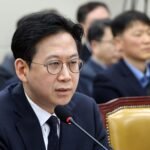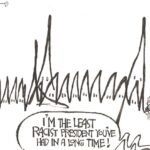South Korea’s Lotte Mart said on Thursday it renewed its Hanoi Center store into a grocery specialty outlet, catering to the growing demand for Korean food (K-food) in Vietnam.
The renovation expands the food section’s footprint from 70% to 90% of the store’s total area on premium fresh offerings.
A dedicated zone showcasing imported fruits, including Korean strawberries, pears, and Shine Muscat grapes, now greets customers at the entrance.
The deli section, featuring ready-to-eat meals, has doubled in size.
An open kitchen allows shoppers to witness food preparation, while a new 90-seat dining area caters to immediate consumption.
The deli offers over 50 K-food items, including popular dishes like tteokbokki and gimbap.
Lotte Mart’s private-label brands Good Today and Yorihada are prominently displayed alongside the local Vietnamese brand Choice L.
The store also introduces new Korean cosmetics brands such as Mediheal, VT, and Lilybyred.
The 2014-opened Hanoi Center store has reduced its non-food offerings, including household goods, clothing, and stationery, to less than 10% of floor space.
This aligns with Lotte Mart’s domestic strategy of strengthening its food segment and capitalizes on the K-Food trend in Vietnam.
The company’s Westlake store, converted into a grocery specialty outlet in September last year, is currently vying for the top spot in visitor numbers and sales among Lotte Mart’s 16 locations in Vietnam.
By Hyun-jin Ra
raraland@hankyung.com














